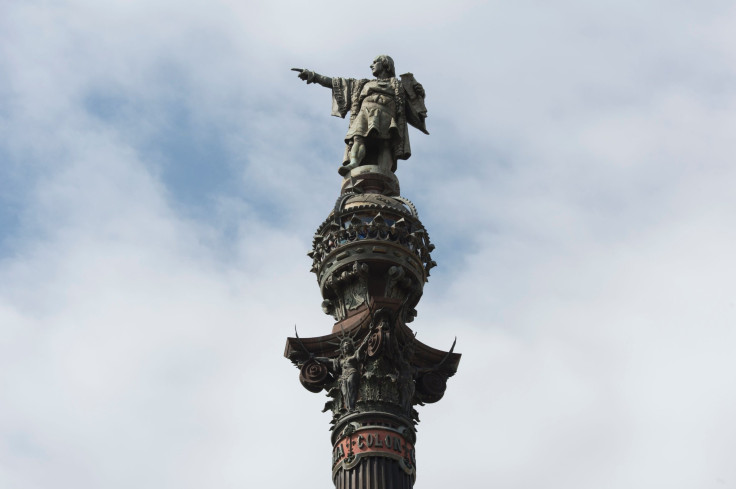Columbus Day Facts 2016: 16 Things You Didn’t Know About The Controversial Explorer

Monday is Columbus Day, an observance in honor of — you guessed it — Christopher Columbus, the explorer credited with colonizing the New World. Though you might know by heart the elementary school refrain summarizing his discovery, there's so much more to the holiday and historical figure himself.
For example, did you know that Columbus was born in 1451 in Italy, but he sailed for Spain? Or that the first Columbus Day event was in 1792? Or that he was once arrested?
Read on for 17 facts to share about Columbus:
Columbus' dad worked as a weaver.
He wanted to find Asia so he could easily access spices for trading. He never did.
In negotiating with Spain, Columbus requested a tenth of the spoils he found in any new land — gold and pearls included.
His ships, the Nina, Pinta and Santa Maria, could hold about 90 people.
He set sail on Aug. 3, 1492 and saw land on Oct. 12.
On that trip, Columbus found what are now the Bahamas, Cuba and Hispaniola. He left behind about 40 men to colonize the lands.
When he returned to Europe, he got the name "almirante mayor del mar," which translates to admiral of the ocean.
Columbus had two sons, Diego and Ferdinand.
There is evidence Columbus helped spread the sexually transmitted disease syphilis in Europe.
On subsequent trips to the New World, Columbus enslaved natives, threatening them with cannons, dogs and the gallows.
When the Spanish royalty discovered how he was treating the locals, it arrested Columbus and made him sail back to Europe wearing chains.
Last year, in his proclamation recognizing Columbus Day, President Barack Obama acknowledged that Native Americans suffered "unseen disease, devastation and violence" as a result of Columbus' arrival.
At the end of his life, Columbus' eyes wouldn't stop bleeding.
Columbus Day has been a national holiday since the 1930s. About half of states give their employees Columbus Day as a paid break from work.
Instead of celebrating Columbus Day, some cities and states will observe Indigenous Peoples' Day "to recognize the true record of what happened," according to activists.
There are two countries that say they host Columbus' remains: Spain and the Dominican Republic.
© Copyright IBTimes 2024. All rights reserved.






















